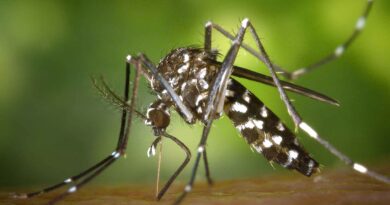Coffee is health food: Myth or fact?
Myth or Fact? Separating Science from Speculation
The declaration that “coffee is health food” has transitioned from medical heresy to mainstream conversation, but how much of this claim represents scientific fact versus wishful thinking? Once dismissed as a vice or mere caffeine delivery system, coffee now enjoys a remarkable rehabilitation in nutritional science. However, the complete picture of coffee’s impact on health is more nuanced than either extreme—coffee as health elixir or health hazard—would suggest. Understanding what rigorous research actually reveals about coffee allows us to answer whether it truly deserves classification as a health food.
The Evolution of Coffee’s Health Reputation
From Suspect to Superfood
The journey of coffee through medical opinion reflects our evolving understanding of nutrition:
Historical Concerns: For decades, coffee was linked with various health concerns, from heart palpitations to increased cancer risk. Many early studies failed to account for confounding factors like smoking—coffee drinkers were more likely to be smokers, creating a false association between coffee and smoking-related diseases.
Paradigm Shift: Beginning in the 1990s, larger, better-designed studies began revealing unexpected benefits associated with coffee consumption. Researchers started distinguishing between the effects of coffee itself and the lifestyle factors common among coffee drinkers.
Current Consensus: Most major health organizations now acknowledge that for most people, moderate coffee consumption can be part of a healthy diet. The American Heart Association, American Diabetes Association, and dietary guidelines in multiple countries have removed previous cautions about coffee.
The Evidence: When Coffee Functions as Health Food
Nutritional Profile Beyond Caffeine
The claim that coffee is health food finds support in its surprisingly complex nutritional composition:
Antioxidant Powerhouse: Coffee is the primary source of antioxidants in many Western diets, outperforming both fruits and vegetables combined in some studies. The roasting process creates compounds with potent antioxidant properties that help combat oxidative stress.
Essential Nutrients: A single cup of coffee provides small amounts of several B vitamins (particularly B2, B3, and B5), manganese, potassium, and magnesium. While not sufficient to meet daily requirements, regular consumption contributes meaningfully to micronutrient intake.
Bioactive Compounds: Beyond familiar caffeine, coffee contains hundreds of biologically active compounds including chlorogenic acids, trigonelline, and diterpenes, each with potential health implications.
Documented Health Benefits
Substantial research supports specific health benefits when considering coffee as health food:
Type 2 Diabetes Prevention: Numerous meta-analyses have found a consistent association between coffee consumption and reduced risk of developing type 2 diabetes. Each additional daily cup (up to 6-8) appears to provide incremental protection, possibly through improved insulin sensitivity and glucose metabolism.
Neuroprotective Effects: Regular coffee drinkers show lower rates of Parkinson’s disease, Alzheimer’s disease, and general cognitive decline. The mechanisms may include both caffeine’s adenosine-blocking properties and antioxidants that protect brain tissue.
Liver Health Support: Coffee consumption correlates strongly with improved liver enzyme levels, reduced liver inflammation, and lower incidence of cirrhosis and liver cancer. The effect appears dose-dependent, with heavier drinkers (3-4 cups daily) enjoying the most protection.
Cardiovascular Benefits: Contrary to historical concerns, moderate coffee intake associates with slightly lower risks of heart failure, stroke, and coronary artery disease. The relationship appears U-shaped, with both abstainers and very heavy consumers facing higher risks than moderate drinkers.
Mental Health Support: Studies consistently find that coffee drinkers have lower rates of depression and suicide, possibly through caffeine’s mild antidepressant effects and coffee’s rich antioxidant content supporting brain health.
The Other Side: When Coffee Falls Short as Health Food
Potential Drawbacks and Limitations
The declaration that coffee is health food requires acknowledging its potential downsides:
Sleep Disruption: Caffeine’s interference with adenosine receptors can significantly impact sleep quality and quantity, particularly when consumed later in the day. Poor sleep undermines numerous health outcomes that coffee might otherwise support.
Anxiety and Jitters: Genetically slow caffeine metabolizers may experience increased anxiety, heart palpitations, and gastrointestinal discomfort from amounts others tolerate well.
Addiction Potential: Caffeine creates genuine physical dependence, with withdrawal symptoms including headaches, fatigue, and irritability that can impair functioning for regular consumers who miss their usual intake.
Nutrient Interference: Coffee can inhibit iron absorption from meals, potentially contributing to deficiency in vulnerable populations. The tannins in coffee may also slightly reduce calcium availability.
The Preparation Problem
How we prepare coffee significantly impacts its health profile:
Calorie Bomb Transformations: The claim that coffee is health food applies primarily to black coffee. Once we add sugar, flavored syrups, whipped cream, and high-fat dairy, coffee quickly transitions from potential health beverage to dessert.
Unhealthy Additives: Many commercial coffee creations contain more sugar than some candy bars, along with artificial flavors, preservatives, and low-quality ingredients that undermine any potential health benefits.
French Press and Unfiltered Concerns: Unfiltered brewing methods (French press, Turkish coffee) contain diterpenes that can raise LDL cholesterol levels in some individuals, though this effect varies significantly between people.
Individual Variation: Why Coffee Affects People Differently
Genetic Factors
The question of whether coffee is health food has different answers for different people:
Caffeine Metabolism: A gene variant (CYP1A2) determines whether people metabolize caffeine quickly or slowly. Slow metabolizers may experience adverse cardiovascular effects from coffee that fast metabolizers avoid.
Caffeine Sensitivity: Genetic variations in adenosine receptors explain why some people feel profoundly stimulated by small amounts of caffeine while others feel little effect from multiple cups.
Pregnancy Considerations: During pregnancy, caffeine clearance slows dramatically, and most experts recommend limiting intake regardless of one’s typical consumption habits.
Acquired Tolerance
The health impact of coffee changes with patterns of use:
Adaptation Effects: Regular drinkers develop tolerance to many of caffeine’s effects, including both benefits and side effects. This means studies on occasional drinkers may not apply to habitual consumers.
Withdrawal Impacts: The negative symptoms experienced during caffeine withdrawal can mask the true benefits or drawbacks of coffee in research settings, complicating interpretation of findings.
Context Matters: Coffee as Part of Overall Lifestyle
The Healthy User Bias
Some benefits attributed to coffee may reflect the lifestyles of coffee drinkers:
Activity Correlation: Coffee drinkers tend to be more physically active than non-drinkers, which could explain some observed health advantages.
Social Patterns: The social aspect of coffee consumption may provide mental health benefits independent of the beverage itself.
Replacement Effects: When coffee replaces sugar-sweetened beverages, the health benefit may come more from what’s being avoided than from the coffee itself.
Synergies with Other Healthy Behaviors
Coffee appears to work best as health food within certain contexts:
Exercise Enhancement: Caffeine’s performance-enhancing effects are well-documented, making coffee a useful pre-workout beverage for many athletes.
Mediterranean Diet Complement: The antioxidant profile of coffee complements other components of heart-healthy eating patterns.
Mental Focus: Used strategically, coffee can support productivity and concentration during demanding mental tasks.
Practical Recommendations: Optimizing Coffee as Health Food
Consumption Guidelines
To maximize potential benefits while minimizing risks:
Timing Matters: Consume coffee before 2 PM to minimize sleep disruption for most people, or adjust based on your individual sensitivity and schedule.
Mindful Additives: If you don’t enjoy black coffee, choose modest amounts of milk or plant-based alternatives and minimal sweeteners.
Listen to Your Body: Pay attention to how coffee affects your sleep, digestion, and anxiety levels, and adjust accordingly rather than following generic recommendations.
Hydration Balance: While coffee contributes to fluid intake, it’s wise to accompany it with plain water, especially if you consume multiple cups daily.
Quality Considerations
Not all coffee is equal when considering it as health food:
Bean Quality: Higher-quality arabica beans typically have better flavor with less bitterness, potentially reducing the need for additives.
Freshness: Freshly ground beans preserve more beneficial compounds than pre-ground options that have oxidized.
Organic Options: While evidence is mixed, organic coffee may reduce exposure to pesticide residues, though the health significance of this reduction is debated.
Roast Level: Contrary to popular belief, lighter roasts retain slightly more chlorogenic acids, though darker roasts develop other beneficial compounds.
Special Populations: Exceptions to the Health Food Claim
Who Should Exercise Caution
For these groups, the statement that coffee is health food requires qualification:
Pregnant Women: Most guidelines recommend limiting caffeine to 200mg daily (approximately 2 cups of coffee) during pregnancy due to potential impacts on fetal growth.
People with Anxiety Disorders: Those with panic disorder, generalized anxiety, or similar conditions may find that caffeine exacerbates their symptoms.
Individuals with GERD or Ulcers: Coffee can increase acid production and relax the esophageal sphincter, potentially worsening reflux symptoms.
Certain Medication Users: Coffee can interact with medications including thyroid hormone, some antidepressants, and certain heart medications.
Children and Adolescents: Most experts recommend minimal caffeine consumption for developing nervous systems.
The Verdict: Balancing the Evidence
After examining the complete scientific picture, we can draw reasoned conclusions about whether coffee is health food:
For the average healthy adult, moderate coffee consumption (3-4 cups daily) appears to provide more benefits than risks, potentially reducing the incidence of several chronic diseases.
The health food designation fits best when considering black coffee specifically, not the high-calorie, sugar-laden versions commonly sold in coffee shops.
Individual response varies sufficiently that blanket recommendations are impossible—what serves as health food for one person may cause problems for another.
Context determines impact—coffee consumed as part of an overall healthy lifestyle likely provides different benefits than the same coffee consumed with poor sleep, high stress, and an unbalanced diet.
Rather than a simple yes or no answer to whether coffee is health food, the evidence supports a more nuanced conclusion: Coffee represents one of the more beneficial beverage choices available, with a impressive array of potential health advantages, but its status as “health food” depends heavily on preparation methods, consumption patterns, and individual biological factors.
The most science-aligned approach would be to enjoy coffee mindfully, pay attention to how it affects your body, and recognize that while it’s not a magic health elixir, it’s also far from the dietary villain it was once considered. For most people, properly prepared coffee can absolutely function as health food—but as with any single food, it’s the overall dietary pattern that matters most for long-term health.



